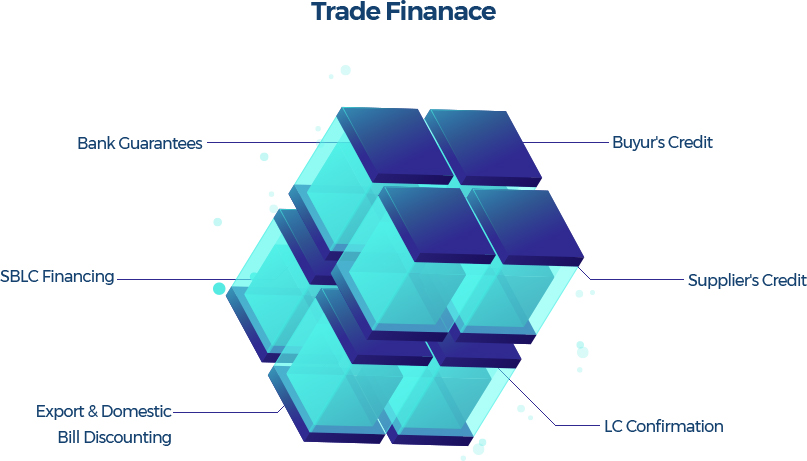The Future of Blockchain Technology: Five Predictions for 2025 (Part 2)
5 min readWelcome to part two of the series where we’re discussing the future of Blockchain, and the revolutions it’s likely to bring by 2025.
While the first part talked about Cryptocurrency for the government, Trillion-dollar tokens, and Blockchain-based identity solutions, this part will explore the other benefits that Blockchain is likely to offer by 2025.
Prediction #4: Blockchain-based world trade

By 2025, most of the world trade will be conducted using Blockchain-based systems.
After all, one of the most promising areas where Blockchain continues to provide significant business value is Supply Chain Management, and especially, Global Supply Chain. In its current state, the world trade is mostly conducted via a fragmented set of business relationships between untrusted parties. This leads to inefficiencies, frauds, and errors. This is one of the, currently unsolved, real-world problems that are difficult to solve without Blockchain.
To put things in perspective, some examples of real-world Supply Chain problems that are in dire need for a solution include:
- Fake medicines in the pharma industry
- Food supply chain
- Counterfeit auto parts in North America
- Enterprise IT equipment
As is evident, the problems are significant, and in certain cases, even life-threatening. According to the WHO, thousands of people die from fake medicines every year. Solving this without Blockchain is difficult because the ecosystem is extremely fragmented, siloed, and only partially automated - to add to this, it also lacks a trusted central authority.
Unlike the Banking industry, where there is a SWIFT system that works reliably and correctly, the supply chain lacks any such system. There is no order, only chaos. Therefore, disruption is not an option. What is required is anti-disruption.
We need to bring order to chaos by using Blockchain technology as a force of unification - in order to unify disparate flows of payments, information, and goods. Of course, this won’t be easy, and end-to-end solutions would require years to build.
Also, as stated earlier, the Blockchain technology is still in pretty much its infancy, however, looking at what all it has achieved, one wouldn’t guess so. Once the technology matures, which won’t be too long from now, the problems in the supply chain will eventually be solved, and Blockchain will play a pivotal role in these solutions.
Prediction #5: Blockchain for good!

By 2025, significant improvements in the world’s standard of living will be attributable to the development of blockchain technology.
Poverty and wage discrepancy are without a doubt the hardest problems for our world to tackle. More than 750Mn. People live on less than $2 a day, and more than 2Bn. People are considered to be unbanked and have no access to any sort of financial service. As the overall living standards are increasing and the world’s GDP is on the rise, it’s the rich that are getting richer, while the poor get poorer.
Blockchain technology has the power to shrink this poverty gap. We’ve seen how Blockchain is capable of increasing financial inclusiveness, reducing corruption, and even enabling decentralized access to valuable assets.
As is already evident, financial inclusiveness is undoubtedly one of the biggest benefits of cryptocurrencies like Blockchain. Bitcoin and Blockchain, together, enable the unbanked population to get banked and therefore, get paid.
One no longer needs to rely on a centralized body like the bank or the government to open a bank account. You can trade cryptocurrencies in an open market (provided access to a crypto exchange) just using your smartphone. A number of merchants around the world are already accepting cryptocurrencies.
By 2025, we’re hoping that cryptocurrency will serve as the de facto standard - quite similar to how the USD is a widely accepted unit of currency today.
Secondly, the Blockchain technology completely eliminates corruption by facilitating transparent storage and transportation of official records. Whether you are a farmer or a house owner, you no longer need to leave your land because of corrupt officials tampering with the land registry. All of the assets, including physical assets like land, will be recorded on a transparent, immutable ledger open for the public to see.
Solving this problem will have massive financial implications for the entire global economy. According to Hernando DeSoto, a prominent economist, “dead capital”, or property or asset which is held but legally unrecognized, is estimated at about $20 trillion. Uncertainty around these asset’s ownership reduces price and trade potential. In such a scenario, Blockchain can help create a transparent and immutable tracking system, and increase global wealth.
Lastly, the Blockchain technology also facilitates large-scale tokenization of valuable assets that is currently only available to the rich. For instance, think about buying an expensive piece of gold mining equipment producing a recurring income stream, or even the Plaza Hotel in New York - you can’t accomplish anything without borrowing a huge sum of money, in the form of a loan, from the bank. Blockchain, by tokenizing these assets, allows you to escape the vicious cycle of loans.
Even if you’re a farmer or someone belonging to the middle class, Blockchain enables you to become a fractional owner of these revenue-generating assets simply by tokenizing them.
In conclusion…
There, you have it. Five major predictions that will likely solve a number of problems that have been hanging on our neck like an albatross.
All of these problems, even if not completely solved, will definitely begin to be looked up by 2025. After all, if you pause and reflect the monumental achievements that Blockchain has encountered ever since its inception, you’ll agree that the problems (and their Blockchain-based solutions) we discussed in the entire two-part series are not something that isn’t achievable. It’s just about time we bid adieu to the problems that have been long hanging. And like we said earlier, we’ll repeat - Blockchain will be at the center of all the solutions.


